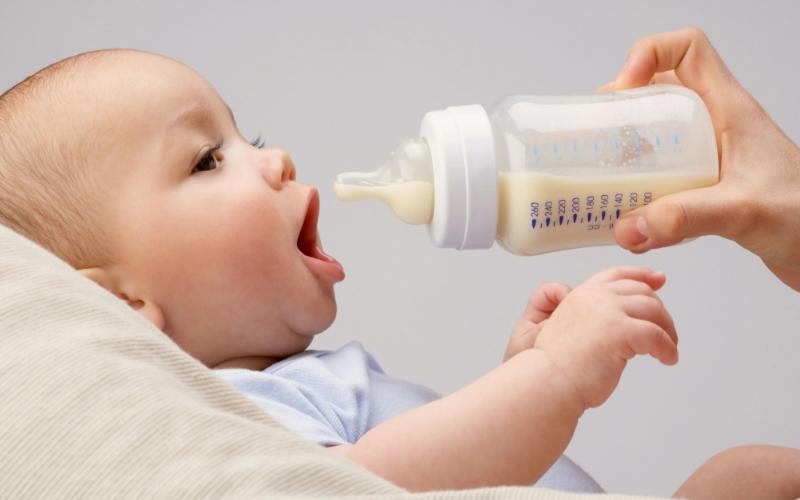Abbott Ordered to Pay $495 Million in Premature Infant Formula Lawsuit
In a landmark verdict, a St. Louis, Missouri state court jury has ordered Abbott to pay $495 million in a case concerning its premature infant formula. The verdict is the first in a series of hundreds of similar claims pending across the country, as reviewed by Reuters via Courtroom View Network.

Illinois resident Margo Gill brought the lawsuit against Abbott, alleging that the company failed to adequately warn that its formula could cause necrotizing enterocolitis (NEC), a potentially fatal disease, in premature infants. The jury awarded Gill $95 million in compensatory damages and $400 million in punitive damages.
The decision was not unanimous but was supported by 9 of the 12 jurors, meeting Missouri’s requirement that three-fourths of jurors must agree to return a verdict in civil cases.
"Companies need to be honest about their products, including both the benefits and the risks," said Jack Garvey, Gill's attorney. "Parents deserve to know the potential dangers when using a formula for preterm infants."
Abbott has expressed strong disagreement with the verdict and intends to seek its reversal. Company spokesman Scott Stoffel emphasized the necessity of specialized formulas and fortifiers for feeding premature infants, stating, "Verdicts like these, which ignore the science and expertise of healthcare professionals dedicated to treating these babies, threaten the continued availability of these essential products."
NEC, which leads to the death of bowel tissue, predominantly affects premature newborns and has a fatality rate ranging from 15% to 40%. Gill's child, Robynn Davis, developed NEC after being fed Abbott’s formula in a neonatal intensive care unit in 2021. Although she survived, Robynn suffered irreversible neurological damage and will require long-term care.
During the trial, Abbott's lawyers contended that Robynn’s injuries were the result of birth-related trauma that deprived her brain of oxygen. They acknowledged that while mother's milk reduces the risk of NEC, specialized formula is sometimes vital and life-saving for premature infants.
Approximately 1,000 lawsuits have been filed against Abbott and Reckitt Benckiser, the maker of Enfamil, in various federal and state courts. More than 500 of these cases are centralized in an Illinois federal court, with others pending in Illinois, Missouri, and Pennsylvania. The lawsuits assert that the companies failed to warn that infants fed with formula have a higher risk of NEC compared to those breast-fed or given donor milk or human milk-derived formula. Both Abbott and Reckitt deny the allegations.
The current case, along with all others involving NEC, pertains to cow’s milk-based formula and fortifiers designed for use in hospitals, not the ordinary formula sold in stores. In March, a separate lawsuit against Reckitt in Illinois concluded with a $60 million jury verdict, which Reckitt is appealing, citing reliance on unsound expert testimony.
Investor concerns have risen due to the litigation, with Reckitt's share price dropping by about 15% following the March verdict and not fully recovering since.
The NEC Society, a patient-led nonprofit organization dedicated to combating the disease, has criticized the lawsuits, arguing that "feeding decisions should be made at patients' bedsides, not in courtrooms."
These NEC lawsuits are distinct from ongoing litigation against Abbott concerning the shutdown of its Sturgis, Michigan plant and the recall of potentially contaminated baby formula, which led to a nationwide shortage in 2022. No trials have been held in those cases yet.
The decision was not unanimous but was supported by 9 of the 12 jurors, meeting Missouri’s requirement that three-fourths of jurors must agree to return a verdict in civil cases.
"Companies need to be honest about their products, including both the benefits and the risks," said Jack Garvey, Gill's attorney. "Parents deserve to know the potential dangers when using a formula for preterm infants."
Abbott has expressed strong disagreement with the verdict and intends to seek its reversal. Company spokesman Scott Stoffel emphasized the necessity of specialized formulas and fortifiers for feeding premature infants, stating, "Verdicts like these, which ignore the science and expertise of healthcare professionals dedicated to treating these babies, threaten the continued availability of these essential products."
NEC, which leads to the death of bowel tissue, predominantly affects premature newborns and has a fatality rate ranging from 15% to 40%. Gill's child, Robynn Davis, developed NEC after being fed Abbott’s formula in a neonatal intensive care unit in 2021. Although she survived, Robynn suffered irreversible neurological damage and will require long-term care.
During the trial, Abbott's lawyers contended that Robynn’s injuries were the result of birth-related trauma that deprived her brain of oxygen. They acknowledged that while mother's milk reduces the risk of NEC, specialized formula is sometimes vital and life-saving for premature infants.
Approximately 1,000 lawsuits have been filed against Abbott and Reckitt Benckiser, the maker of Enfamil, in various federal and state courts. More than 500 of these cases are centralized in an Illinois federal court, with others pending in Illinois, Missouri, and Pennsylvania. The lawsuits assert that the companies failed to warn that infants fed with formula have a higher risk of NEC compared to those breast-fed or given donor milk or human milk-derived formula. Both Abbott and Reckitt deny the allegations.
The current case, along with all others involving NEC, pertains to cow’s milk-based formula and fortifiers designed for use in hospitals, not the ordinary formula sold in stores. In March, a separate lawsuit against Reckitt in Illinois concluded with a $60 million jury verdict, which Reckitt is appealing, citing reliance on unsound expert testimony.
Investor concerns have risen due to the litigation, with Reckitt's share price dropping by about 15% following the March verdict and not fully recovering since.
The NEC Society, a patient-led nonprofit organization dedicated to combating the disease, has criticized the lawsuits, arguing that "feeding decisions should be made at patients' bedsides, not in courtrooms."
These NEC lawsuits are distinct from ongoing litigation against Abbott concerning the shutdown of its Sturgis, Michigan plant and the recall of potentially contaminated baby formula, which led to a nationwide shortage in 2022. No trials have been held in those cases yet.










